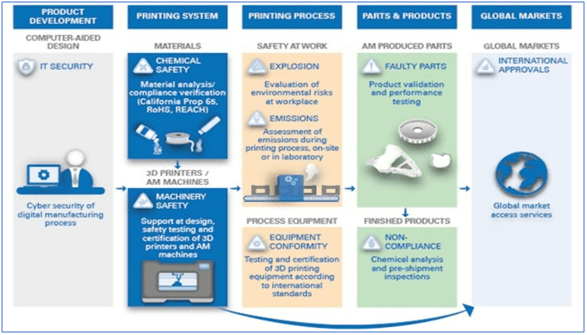Technology has changed business for the better – it has allowed for more connectivity between employees and employers, made more information available, allowed for more streamlined storage of files, and increased analytical power of data. As technology continues to grow, change, and advance, the benefits of technology in business will continue to strengthen organizations.
One area that continues to develop in the face of technological advancements is supply chain management. The supply chain is key to many businesses – it can affect everything from the quality of your products to the speed of delivery to customers. Since the supply chain can have several points of impact on your company, it can be beneficial to take advantage of technological developments to get the most from the supply chain strategy.
Table of Contents
The Future Supply Chains
The supply chain of tomorrow will be leaner, faster and most importantly, self-orchestrated. This unprecedented pace of change will be driven by a few radical technologies that will be cautiously adopted by industry participants over the next 15 years. This article discusses five new technologies identified from a comprehensive analysis of the future of supply chains.

3D Printing Technology
The future of 3D printing lies in the business opportunities that lie in the adoption of the technology. One area business has seen immense value is 3D printing’s impact on the supply chain. With top 3D printing companies rapidly making the technology more accessible to a wide range of industries, more and more companies have embraced 3D printing’s streamlined supply chain. The benefits of this optimized supply chain are increasingly evident.
Transitioning to on-demand manufacturing leads to cost savings by eliminating or significantly reducing inventory requirements. The benefits of digital files also provide the ability to quickly produce new iterations at little to no additional cost. With a single source for a variety of parts, businesses that use 3D printing contract manufacturers deal with less risk, more control and added agility in relation to their product lifecycle. Local facilities can 3D print designs on-demand from files sent across the globe, or they can print securely from a nearby supplier.
Drones Technology
The last mile to the customer is often the most expensive and inefficient aspect of supply chain management, but drones’ potential to speed up deliveries and reduce costs has some believing they will change the way the world delivers goods. And although the technology is still developing, it’s easy to use and is becoming readily available. Shipping firms like FedEx and UPS can use drones to monitor traffic and optimize drivers’ routes based on real-time data, taking some hassle out of the end-stages of the supply chain. Imagine placing an order online and a drone delivering it to your front door in less than an hour. Logistics companies like DHL and organizations like Amazon and Google are developing and experimenting with drones to do just that, especially for lightweight consumer goods. But drone delivery might not be only for small packages. Boeing, for instance, recently developed a UAV to carry up to 500 pounds of cargo. The multinational aircraft company aims to build its own large-scale cargo platform and ultimately deliver solutions that will help shape the future of autonomous flight.

Wearable Technology and Smart Glasses
The next big advance in future supply chain tech could be augmented reality: wearable digital systems that promise to reinvent the costly and cumbersome picking process in warehouses. Many warehouses today still use a paper-based approach to stock picking, which is slow and error-prone.
Augmented reality systems currently being offered by companies such as Knapp, SAP, and Ubimax consist of a smart-glasses display, a camera, a wearable PC and a battery pack. By using the augmented-reality system, workers can see the digital picking list in their field of vision through smart glasses.
The full content is only visible to SIPMM members
Already a member? Please Login to continue reading.
References
Forrest Burnson. (2019). “What’s the Future of The Supply Chain management”. Retrieved from https://www.softwareadvice.com/resources/future-of-supply-chain-management/, accessed 21/02/2019.
Joe Qiao Zihui, ADPSM. (2019). “Current Applications of Blockchain Technology for Global Supply Chain”. Retrieved from SIPMM: https://publication.sipmm.edu.sg/current-applications-blockchain-technology-global-supply-chain/, accessed 21/02/2019.
Shailey Kumar. (2018). “Emerging Tech and The Digital Supply Chain”. Retrieved from https://www.digitalistmag.com/digital-supply-networks/2018/10/10/emerging-tech-digital-supply-chain-06189989, accessed 21/02/2019.
Stanley Teo, ADLSM. (2017). “Impact of the Emerging 5G Network Technology on Logistics and Supply Chain Management”. Retrieved from SIPMM https://publication.sipmm.edu.sg/impact-of-the-emerging-5g-network-technology-on-logistics-and-supply-chain-management/, accessed 21/02/2019.
Vivek Soneja, (2018). “Emerging Technology and Supply Chain: Breaking Through the Hype”. Retrieved from https://www.supplychaindigital.com/technology/emerging-technology-and-supply-chain-breaking-through-hype, accessed 21/02/2019.

